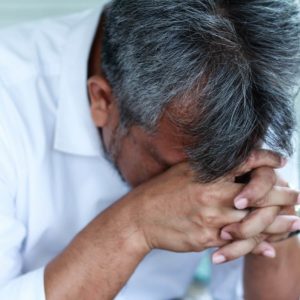
Hormones get a lot of attention. They get the blame for moodiness in teenagers, tiredness as we age, and of course, affecting our libidos. Hormones are the chemical messengers that affect different processes in the body, including metabolism, growth and development, sexual function and reproduction as well as emotions and mood. But there are misconceptions about how complex hormones are and what they can do. Here are 10 hormone facts you may not have known.
1) Men Need Testosterone and Estrogen
Most people consider testosterone as the male hormone and estrogen as the female hormone. However, men and women produce both these hormones that are essential to their health. While testosterone and estrogen are steroid hormones, estrogen is made from testosterone. While men make more testosterone than women, they also make estrogen in their liver, brain, muscle, and fat cells. And while men are generally more concerned about their testosterone levels, their estrogen levels are also important for good health. A healthy balance of testosterone and estrogen is essential for bone health, heart health, and prostate health.
For a free consultation, call (305) 682-1818
2) Hormones Can Be Made from More Than Just Glands
Most people know that hormones are made in the testes and ovaries, but they can also be made from the liver, brain, muscle, and fat cells. The glands that comprise the endocrine system are the primary synthesizers of hormones, but they can be made practically anywhere in the body. The intestines make gastrin, a hormone that helps with digestion. Leptin is made by fat cells and signals hunger. Even bones can make hormones.
3) Hormones Can Affect Your Sleep
 If you have trouble sleeping, this could be a sign that you have a hormonal imbalance. The hormone melatonin regulates your body’s biological clock. If your melantonin levels are low, you may have trouble falling into a deep sleep. Artificial light and blue screens from our ever-present devices can disrupt the circadian rhythm and cause melatonin deficiency.
If you have trouble sleeping, this could be a sign that you have a hormonal imbalance. The hormone melatonin regulates your body’s biological clock. If your melantonin levels are low, you may have trouble falling into a deep sleep. Artificial light and blue screens from our ever-present devices can disrupt the circadian rhythm and cause melatonin deficiency.
Click to contact our specialist today
4) Vitamin D Is a Vitamin and a Hormone
Vitamin D has the distinction of being the only vitamin that is both a vitamin and a hormone. Its deficiency can lead to bone loss, hair loss, muscle pain, depression, fatigue, tiredness, and more. Alternatively, since human skin can make vitamin D, and vitamin D can increase testosterone concentration in men, increased sun exposure can elevate testosterone levels in men. However, there is not enough research to confidently state that optimizing vitamin D levels fixes low testosterone in men.
Complete a Free Consultation form now
5) Hangovers Are a Result of Anti-Diuretic Hormones
Did you know your body has an anti-diuretic hormone? This hormone helps control blood pressure and conserve fluid in the body. When you drink alcohol, it affects the job of the anti-diuretic hormone, causing you to become dehydrated, which is the major cause of a hangover. Alternatively, too much of this hormone will cause the kidneys to retain too much water.
6) Testosterone Can Turn into Estrogen
Testosterone can cross the neural barrier and turn into estrogen. However, estrogen can’t do the same. Testosterone conversion to estrogen is not considered a major problem in most healthy men. The human body can make estrogen from the precursor hormone testosterone, but this is not an automatic 100% conversion. Nor does testosterone therapy cause excess estrogen in men, since the effect is generally transient if it occurs.
7) Testosterone is More Than Just a Sex Hormone
For most people, the hormone testosterone is synonymous with male characteristics and sex drive. However, this hard-working hormone does much more than that. It regulates red blood cell production, fat distribution, bone density, muscle mass, and more. Testosterone affects every cell of a man’s body.
8) Male Menopause Is a Thing
 It’s called many things – midlife crisis, male menopause, or andropause – but regardless of what you call it, this is a real phenomenon. And, as you may have guessed, your hormones are behind it. A man’s testosterone levels drop about 1% every year after 30. This triggers a wide range of subtle mental and physical changes. In most men, the main changes are feeling weaker and less virile.
It’s called many things – midlife crisis, male menopause, or andropause – but regardless of what you call it, this is a real phenomenon. And, as you may have guessed, your hormones are behind it. A man’s testosterone levels drop about 1% every year after 30. This triggers a wide range of subtle mental and physical changes. In most men, the main changes are feeling weaker and less virile.
9) Thyroid Hormone Levels Lower with Age
In addition to lower testosterone levels, men also experience lower thyroid hormone production as they age, sometimes as young as age 20. This can cause symptoms such as weight gain, weakness, memory loss, erectile dysfunction, constipation, and more. In women, lowered thyroid hormones can cause fatigue, weight gain, weakness, and more.
10) Hormone Imbalances Affect More Than Just Sex Drive
When people think about testosterone, they tend to connect it only to sex drive. Too much increases sex drive while too little has the opposite effect. This is not the case. A hormonal imbalance can cause many symptoms, including heart palpitations, depression, hair loss, anxiety, weight gain, memory loss, and more. It can even increase the risk of serious health issues such as heart attack and stroke.
If you are concerned about hormone imbalance, find out more about our bio-identical hormone therapy. Contact us to discuss various options and make an appointment.
Call or text (305) 682-1818 or complete a Free Consultation Form







